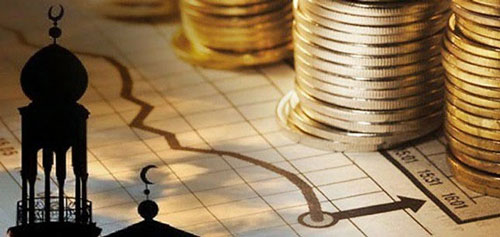Observer Report Karachi
Islamic banking industry’s assets and deposits saw more than five-year high growth during the last year to reach Rs4.2 trillion and Rs3.3 trillion with asset surge primarily associated with investments, the central bank said.
The State Bank of Pakistan (SPB), in a bulletin for the quarter (October-December 2020) said the asset base of Islamic banking industry (IBI) grew 12.1 percent (Rs461 billion) over the same period last year. Similarly, the deposits of Islamic banking industry depicted a quarterly growth of 11.7 percent (Rs355 billion).
Assets of IBI witnessed year-on-year growth of 30 percent, which is the highest growth in asset base since December 2012, whereas deposits also regis-tered growth of 27.8 percent, the highest growth since December 2015.
“The growth witnessed in the Islamic banking in-dustry shows a promising transition to the new dec-ade even amidst Covid-19 pandemic,” said the SBP.
In terms of market share, IBI achieved a significant mark of 17.0 percent and 18.3 percent in assets and deposits respectively, of overall banking industry by end December 2020.
Moreover, profit before tax of IBI stood at Rs88.4 billion at the end of the Decem-ber 2020. The assets and deposits of Islamic banking industry accounted for 17 percent and 18.3 percent of overall banking industry, according to the SBP.
Over the last five years, both assets and deposits of the Islamic banking industry have more than dou-bled.
This growth in assets and deposits of the Is-lamic banking industry is encouraging, particularly due the fact that the industry was also faced with the Covid19 pandemic challenges during 2020.
Financing of the Islamic banking industry has also grown by 16 percent last year. Further, non-performing finances-to-financing ratio has declined from 4.3 percent, as of end December 2019, to 3.2 percent as of end December 2020.
At the end of December 2020, composition of Is-lamic banking industry remained same with 22 Is-lamic banking institutions comprising 5 full-fledged Islamic banks (IBs) and 17 conventional banks hav-ing standalone Islamic banking branches (IBBs).
The branch network of IBI saw a quarterly expan-sion of 153 branches and increased from 3,303 branches to 3,456 branches (spread across 124 dis-tricts of the country). During the year, 230 branches were added to the branch network.
The region wise concentration of branches is in Punjab, followed by Sindh and Khyber-Pakhtunkhwa.
During the last quarter, 252 new windows were added to the network of Islamic banking windows (dedicated counters at conventional branches) oper-ated by conventional banks having IBBs and reached a total of 1,638 Islamic banking windows by end December 2020.
At the quarter end, assets of IBs witnessed a rise of 11.8 percent (Rs2.6 trillion) to reach Rs2.4 trillion from Rs2.2 trillion by end-September, whereas, assets of IBBs witnessed a surge of 12.5 percent (Rs197.1 billion) and increased to Rs1.7 trillion from Rs1.5 trillion by end September. Further, the share of IBs and IBBs in overall assets of IBI stood at 58.5 percent and 41.5 percent, respectively.
Assets grew primarily because of investments made by IBI that registered considerable increase of 17.9 percent (Rs191 billion) and were recorded at Rs1.2 trillion compared to rise of 0.3 percent in corre-sponding period of 2019.
This increase is mainly attributed to investments made by IBI in govern-ment sukuk during the period under review.










